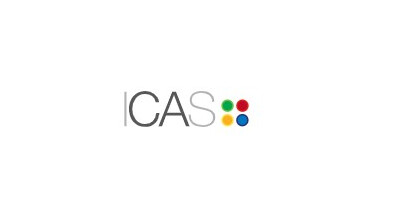ICAS: Short-term planning won’t solve Scotland’s long-term challenges

Chris Barber CA – CFO at ICAS
The Institute of Chartered Accountants of Scotland (ICAS) has urged the Scottish Government to adopt a longer-term approach to financial planning in response to its latest spending figures and future strategy.
This call for a more sustainable and transparent fiscal framework comes as the Scottish Government announced it had invested over £52 billion in public services during the 2024-25 period.
The Scottish Government’s 2024-25 Provisional Outturn highlighted significant investments, including over £19.5 billion in health and social care and more than £5.9 billion in social security, which supports over 1.4 million people. A key element of this was the Scottish Child Payment, benefiting 326,225 children as of March 2025. The government also noted that the Scottish economy grew by 1.2% in 2024, slightly ahead of the UK’s 1.1% growth. A remaining £557 million, representing 1% of the total budget, has been carried over to the 2025-26 financial year.
Public Finance Minister Ivan McKee stated that the government had “prudently and competently” managed Scotland’s finances amidst challenges like inflation and public sector pay pressures. He pointed to constrained future funding from the UK Spending Review as a key challenge that will be addressed in the new Medium-Term Financial Strategy (MTFS).
Responding to the MTFS, ICAS warned that while the multi-year outlook is a “positive step forward”, a much longer-term vision is essential to tackle Scotland’s growing financial and service delivery challenges.
Chris Barber CA, chief financial officer at ICAS, said: “We need further clarity on the longer-term financial direction, priorities, the impact of policy decisions and trade-offs.
“We must move to a more sustainable and transparent framework for Scotland’s finances. ICAS has called for a coherent financial roadmap for our public services for many years. Without this, how we run, manage and deliver our vital public services is hampered.
“It’s well known that a significant gap exists between the revenue raised through taxation and the level of public spending needed to meet rising demand, policy choices and inflation over the longer term. Governments must show whether their choices are delivering results. Difficult choices on priorities are inevitable and necessary.”
“With rising pay bills and increased costs, the case for a strategic fiscal framework and longer-term planning has never been stronger. People need to see what the outcomes are for the taxes that they pay. Longer-term financial planning is good financial practice and means governments can be flexible in how they can respond to shocks and changes.”
Mr Barber continued: “Scotland needs a stronger and more sustained focus on driving economic growth to expand available funding and secure long-term financial sustainability. We want to see how the strategy, budget, and fiscal framework will align to achieve the overarching goals of a healthy economy and high-quality public services.
“We also need to understand how investment in public sector reform and economic growth will deliver outcomes and what difficult choices still need to be made. A clear roadmap combining the various elements would demonstrate alignment, support transparency, accountability and scrutiny.
“We continue to advocate for a rolling five-year tax strategy that sets out clear objectives and timelines for devolved tax policy. It must also show how the taxation regime can be adjusted to encourage economic growth, investment, and job creation.”






